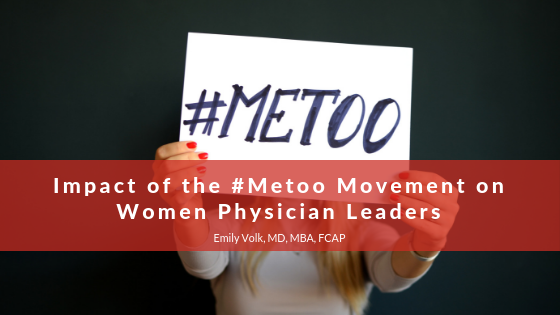Over the past year, the #MeToo movement has been everywhere. Women and men all over the country have stood up to say that they have experienced a form of workplace sexual harassment, and they have had enough. Something that started in the entertainment industry quickly spread to all industries. Healthcare is no exception. In fact, in a recently published survey, 30% of women on medical school faculties have reported experiencing some form of harassment in the past two years alone, JAMA. 2016;315(19):2120-2121. doi:10.1001/jama.2016.2188.
Importance
The opportunity in this movement is on the progress we will gain by addressing issues that have been cast to the shadows for years. Addressing the #MeToo movement in your own workplace can be difficult, but now more than ever it is crucial for leaders to examine carefully their approach and adapt if needed.
Culture & Education
Leaders in healthcare and medicine must create a work environment where all employees feel supported. Employees also need to feel that their leaders are prepared and equipped to handle the seriousness of harassment allegations. This starts with education. Do not assume that a healthy workplace culture emerges without deliberate efforts by leadership. Train yourself and your staff on communication practices that create low risk environments for harassment. Make sure your employees truly know what to do should they experience it.
Policy Enforcement
In order for your staff to feel supported in coming forward about any harassment they have faced, policy enforcement must start at the top. People have no reason to come forward if they do not feel like their abuser will be held accountable. When a complaint is received, it must be fully investigated and reasonably considered.
Why now?
Many are asking the question, “why now?” as the #Metoo movement matures. Responses to this question vary, but perhaps it comes down to something rather simple–victims are finding more sources of public support. Only a few years ago, victims often received scathing criticism and often ridicule for raising red flags. That seems to be changing. There is power numbers, such that many victims who previously felt isolated now are willing to speak out knowing they are not alone. We must nurture workplace environments where women and men feel supported and safe, especially as we all work to create better lives for our patients and their families.
